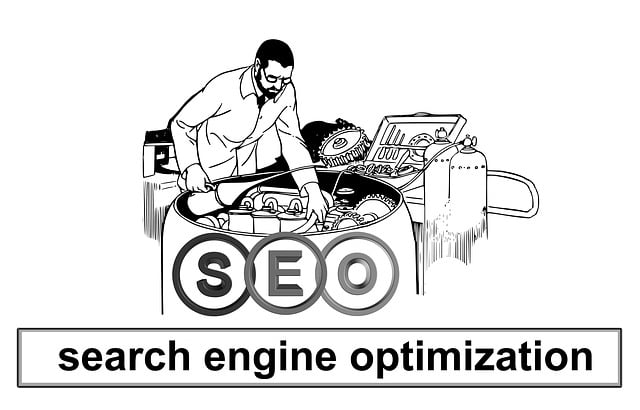Technical SEO is a vital digital marketing strategy that optimizes websites for improved search engine results page (SERP) visibility. Key aspects include website structure, performance, and user experience enhancements like fast loading times, mobile optimization, structured data markup, XML sitemaps, and clear navigation. By addressing these factors, businesses can significantly boost their ranking potential, driving increased organic traffic. Regular technical SEO audits using tools like Google Search Console help identify and fix issues like broken links, slow loading times, and duplicate content, further improving user experience and search engine understanding of the website's content.
In the competitive landscape of digital marketing, understanding Technical SEO is paramount to improve organic search rankings. This article delves into the essential practices that underpin your website’s visibility on search engines. From optimizing site structure to enhancing page speed and ensuring mobile-friendliness, each element plays a crucial role in boosting your online presence. Learn how structured data markup can elevate your site’s visibility and why regular technical SEO audits are vital for sustained success.
Understanding Technical SEO and Its Impact on Rankings

Technical SEO is a crucial aspect of digital marketing that focuses on optimizing a website’s structure and performance to enhance its visibility in search engine results pages (SERPs). It involves a deep understanding of how search engines crawl, index, and rank websites, and it plays a pivotal role in improving organic search rankings. By ensuring your website is technically sound, you can make it more accessible and efficient for both users and search engine algorithms.
This type of SEO addresses various factors that impact the overall health of a site. From ensuring fast loading times and mobile-friendliness to implementing structured data markup and creating an XML sitemap, each element contributes to a smoother user experience and helps search engines better understand your content. When implemented effectively, these technical optimizations can significantly boost your website’s ranking potential, driving more organic traffic and visibility for your business or brand.
Essential Elements for Optimizing Your Website's Structure

A well-structured website is a cornerstone in improving organic search rankings. To optimize your site’s structure, start by creating a clear hierarchy using relevant categories and subcategories. This helps search engines understand your content’s context and make it easier for users to navigate. Implement a logical site architecture with easily readable URLs, ensuring each page has a specific focus and is interconnected within the website’s network.
Additionally, leverage XML sitemaps and robots.txt files to guide search engine crawlers through your site. These tools provide insights into your web pages’ accessibility, helping search engines efficiently index your content. By combining these structural elements, you enhance the overall user experience while signaling to search algorithms that your website is well-organized and worthy of higher rankings.
Enhancing Site Speed: A Key Factor in Search Engine Algorithms

Improving site speed is an often-overlooked yet powerful strategy to boost your website’s visibility and improve organic search rankings. Search engine algorithms, particularly Google’s, prioritize delivering fast-loading pages to users, as it enhances their overall browsing experience. By optimizing your site’s performance, you send a positive signal to search engines, indicating that your content is valuable and accessible.
One of the primary factors affecting site speed is page load time. You can enhance this by compressing images, leveraging browser caching, and implementing a Content Delivery Network (CDN). Additionally, code optimization, minification, and efficient database queries contribute to faster loading times. These techniques not only improve search rankings but also encourage visitors to stay longer on your site, reducing bounce rates.
The Role of Mobile-Friendliness in Modern Search Rankings

In today’s digital era, mobile-friendliness is no longer an optional consideration but a critical factor in shaping search rankings. Google’s algorithms prioritize websites that offer seamless and intuitive experiences on mobile devices, as a significant portion of online searches now originate from smartphones and tablets. A mobile-friendly site ensures faster loading times, easy navigation, and optimized content for smaller screens, thereby enhancing user satisfaction and encouraging longer visits. This direct correlation between mobile usability and improved organic search rankings underscores the importance of adapting to modern user behaviors and expectations.
Webmasters who fail to optimize their sites for mobility risk alienating a substantial segment of their potential audience. By implementing responsive design, ensuring page speed, and streamlining content for mobile users, website owners can significantly boost their online visibility. These measures not only cater to Google’s ranking criteria but also foster better engagement and conversion rates, creating a positive feedback loop that reinforces the site’s overall authority and relevance in search results.
Implementing Structured Data Markup for Better Visibility

Structured Data Markup is a powerful tool that can significantly boost your website’s visibility and improve organic search rankings. By adding specific code snippets to your website, you provide search engines with clear, structured information about your content. This helps search engine algorithms better understand what your pages are about, leading to more accurate indexing and higher ranking potential.
Implementing this markup allows you to highlight key elements like product details, event schedules, or reviews, making your web pages stand out in the eyes of search engines. It’s a straightforward yet effective strategy that can drive more relevant traffic to your site as it ensures your content is displayed accurately in rich snippets, encouraging users to click and engage with your website.
Regularly Auditing and Fixing Technical SEO Issues

Regularly auditing your website for technical SEO issues is a crucial step in improving organic search rankings. These problems, often invisible to the casual user, can significantly hinder a site’s performance in search engine results pages (SERPs). Common technical SEO issues include broken links, slow page loading times, mobile-unfriendly design, duplicate content, and incorrect XML sitemaps. By conducting thorough audits using tools like Google Search Console, Ahrefs, or SEMrush, you can identify these bottlenecks and take corrective actions.
Fixing these issues not only enhances the overall user experience but also sends positive signals to search engines. For instance, repairing broken links ensures that users and search engine crawlers alike can navigate your site seamlessly. Optimizing page speed improves user engagement and reduces bounce rates, while a mobile-friendly design accommodates the growing number of mobile web surfers. Regular technical SEO maintenance is an ongoing process that demands commitment but pays dividends in terms of higher rankings, increased visibility, and better conversion rates.
